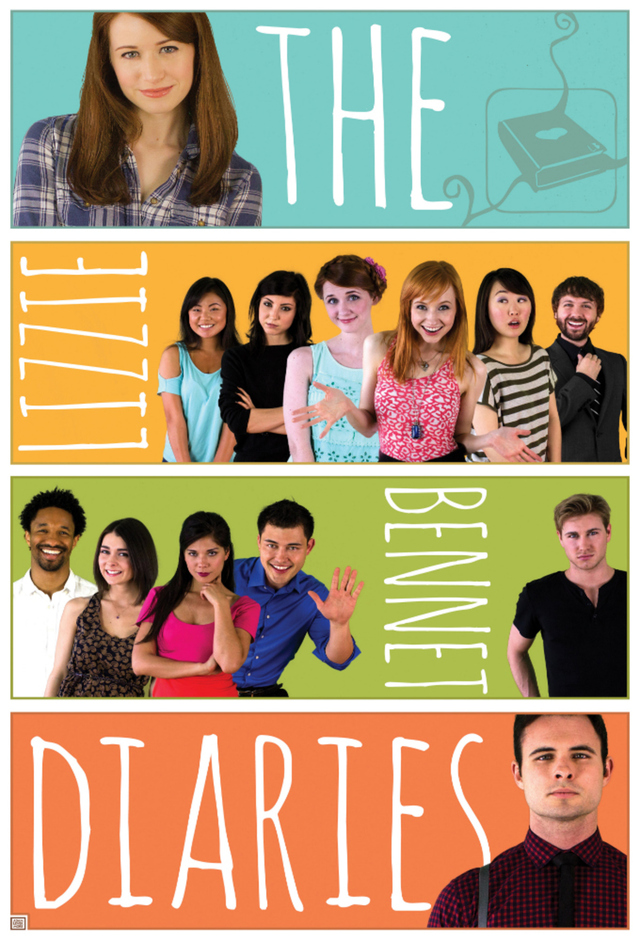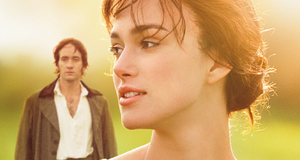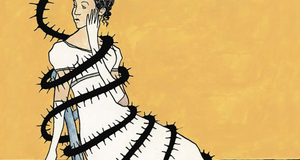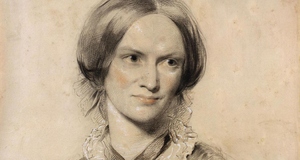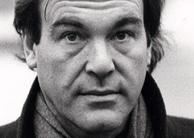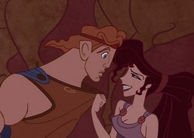New Media Adaptations of Classic Literature: From Pride and Prejudice to The Lizzie Bennet Diaries
By
2016, Vol. 8 No. 10 | pg. 1/1
IN THIS ARTICLE
AbstractPride and Prejudice, the work of nineteenth century novelist Jane Austen, has been celebrated for over two-hundred years since its first publication. It has been adapted, reinvented and re-imagined over and over again to the delight of both loyal readers and interested newcomers. One such adaptation is the new media sensation, The Lizzie Bennet Diaries. Developed as a web show, The Lizzie Bennet Diaries successfully honors important themes found in Pride and Prejudice, namely its strong female characters, to tell a story that remains true to Austen's roots while engaging a new generation of viewers. Although it is a decidedly unconventional retelling of the classic novel, The Lizzie Bennet Diaries has succesfully adapted the original work in a new and novel medium — the web "vlog." Pride and Prejudice (1813), the brainchild of nineteenth century novelist Jane Austen, has more than stood the test of time. Scholars, critics, and readers alike remain fascinated by “Jane,” as Austen is called by devotees, and the trials and tribulations of her beloved characters from Pride and Prejudice. So fascinating is her world, and the cast of characters she brings to life, that Austen’s books are constantly being adapted and re-imagined for a modern audience. One such adaptation is The Lizzie Bennet Diaries (2012), a new media translation of Pride and Prejudice created by Hank Green and Bernie Su which stars Ashley Clements, Mary Kate Wiles, Laura Spencer, Julia Cho and Daniel Vincent Gordh. Although this adaptation is dramatically different from the original, as it speaks to a contemporary audience in a form very different from previous adaptations, the series has garnered considerable praise. On the one hand, it is the differences from the original work that make it a refreshing and engaging take on a popular story. On the other hand, however, its success is also attributed to the great attention to character, particularly the female characters at the heart of Pride and Prejudice. Yet what ultimately makes the Lizzie Bennet Diaries so successful is that it does not try to compete with Austen’s tale, but rather honors it. This allows audiences who are fans of the original text the freedom to enjoy The Lizzie Bennet Diaries for what it is, as a modern tale, and for new readers, who discovered Austen through the diaries, to become acquainted and engaged with Pride and Prejudice. In order to understand the success of the series and its contemporary relevance, it is important to look at the history of adaptation in relation to fandoms. Research has found that there is higher popular success among fans when a work ventures past explicit canon rules in favor of a radical adaptation. In addition, the success of Lizzie Bennet Diaries can be understood in the way that Austen is often connected with “chick flicks” for her stylistic approach—with similarities to a romantic comedy—but without being centered in a genre frequently belittled. Finally, in order to understand how Lizzie Bennet Diaries works so well as an adaptation, it is essential to develop an understanding of the new media form, where it contains both possibilities and limitations for online storytelling, and how ultimately they become productive. The Lizzie Bennet Diaries retain Austen’s focus on female characters but subtly shifts attention from marriage prospects to career prospects using the online medium to create a perspective-driven narrative that opens up characters in ways that Austen’s Pride and Prejudice did not. Revisions and Adaptations: Fandoms, Chick Flicks, and New MediaWell-known texts are often reworked for stage or screen, to the point that it is difficult to tell whether a fanbase leads to adaptations or whether adaptations increase the size of a fandom. Unlike other nineteenth-century writers, Austen has an active fandom. Present day audiences are familiar with the concept of the super-fan as the internet has become a nesting ground for the likes of the infamous Trekkies, for Star Trek; Whovians, for Dr. Who; Gleeks, for Glee; Twihards, for…well, you get the idea. In the fandom of Jane Austen, followers are affectionately referred to as the Janeites (Lynch, 2005, p. 112). Deidre Shauna Lynch (2005) claims that the term for these super-fans was coined in 1894, while Susannah Carson (2009) believes that it can be traced to Rudyard Kipling (Carson, 2009, p. xi; Lynch, 2005, p. 112). Few Pre-Victorian authors can claim such devotion. So why do we go to Jane Austen again and again? In a very simplified statement: Jane gets it. Carson (2009) surmises that Austen’s power over her audiences has entirely to do with her involving us in her words, investing us in a sense of humanity still relevant, and providing us with the best kind of escapism (p. xii). Lionel Trilling (2009) points out that even newcomers to Austen’s novels found her writing appealing; it “presented a mode of life which brought into question the life they themselves lived” (p. 61) and also “offered itself to their fantasy as an alternative to their own mode of life” (p. 61). At her very core she reaches people and, in her writing, her audience sees reflections of their own lives. They go to her not just for pure entertainment, but for a wisdom and understanding that is almost biblical as though there was something Jane understood about life that somehow escaped the rest of us. The love for Jane is quite profound among both her super-fans and those who have only just met her, but generally the consensus is an infinite desire to know more. Because Austen is popular, it is not surprising that filmmakers have adapted her work for the big screen quite frequently. Adaptations, in turn, may lead viewers to seek out Austen’s novels (Wells, 2011, p.1). The relationship between Austen’s novels and their adaptations is thus complex, with no guarantee that an audience will encounter an earlier version of a narrative before discovering a later version. Lis Marxen (n.d.) also points to the ways that Austen’s writing itself can be considered revisionary, because “Austen’s novels built on her predecessors” (p. 2) yet, at the same time, “her work differs” (p. 2). Despite Austen’s many influences, Marxen ( n.d.) notes that “Austen’s style is perceived as original and accomplished” (p. 5). Where the adaptation is concerned, this is particularly noteworthy because just as she used her predecessors’ influence to develop a voice, Austen’s voice itself is often used as an influence for others to build upon. How, then, can the success of an adaptation be judged? Mark O’Thomas (2010) uses Pride and Prejudice as an example when stressing the need to create a memorable but authentic piece of work. He explains that adaptations are similar to translations in that there must be some “fidelity to an original text” (O’Thomas, 2010, p. 47). Ultimately, O’Thomas’s argument stresses the need for the work to not only maintain the spirit of the original but also to reach the audience. If the work is not successful, inevitably someone will find a way to make it better. Ironically Pamela Demory (2010) cites that it is “the adaptations that take more liberties with time and place tend to fare better among readers” (p. 129). Lis Marxen (n.d.) agrees musing that, “the further away from replica mode these new reinventions venture, the more fascinating the outcome frequently is” (p.1). Where Austen purists are critical when a text is closely adapted due to concerns over authenticity, when works like Clueless (1995) and Bride and Prejudice (2004) set a precedent, with less strict storylines, the audience is often willing to adapt and to be more flexible. Clueless and Bride and Prejudice, to great success, do allude heavily to the original piece, but also while having fun and creating a place of current social relevance. Still, no matter the form of storyline, Austen adaptations are often cast as romantic comedies or romances because of the happy endings associated with her writing. Yet when her works are adapted, the label of “chick flick” often negates the complex layers beyond the “search for love” plotline. Pamela Demory (2010) notes that, “The term ‘chick-flick’ flick denotes not just gender, but quality as well. While Austen’s novels are Great Books, the film adaptations are often seen by scholars as sentimental and frivolous” (p.122). This can end up sometimes boxing Austen into a sexist and stereotypical corner as being a writer that only women will enjoy. Yet, Demory (2010) deduces that various factors do come into play when making an Austen film, some of which include the expectations of the audience—both serious readers and viewers alike, and even “market forces” (p. 123). Therefore, how one views an adaptation may rely on perspective and in some cases a degree of knowledge about the subject matter. Regardless of individual opinion on style, adaptations have proven phenomenally useful in engaging newcomers to the world of Jane Austen. However, the media is also changing the ways we can participate and engage. New media offers the potential to revise in ways that step away from the original while engaging fans more fully in the fictional world. The internet helps its audiences to expand and build their interests and information. As a new media form of social interaction, YouTube allows people to post videos, comment on videos, and subscribe to channels. It also caters to interests by recommending other related videos further promoting other channels. One of the newer sensations online is to create, in essence, television online in the form of webisodes. When making an online series, the show premieres much like a television show, and includes a strict premiere schedule often with mid-season breaks and finales. The only difference is that a webisode will often be significantly shorter than a half hour or hour long television program. Much like a network production, new media is used to create an original form of entertainment online. Plus, information and interests are very easily linked and advertised through the social media. This means all of us who have a great passion for stories, and entertainment, can share videos we like with each other through many social media forums such as Twitter, Facebook, Tumbr or even personal blogs, making the internet the perfect platform for discovering interests and people who like the same things we do. Once we connect online, our interests can be shared with our followers and with the rest of the world. It is the adaptation that takes the unconventional route that sticks with viewers best. And, with the benefits of social media, great growth is possible. They pique the interest of those who were already fans of the original work and potentially draw in newcomers to the fandom gathering attention to the text and adaptation and vice versa, bringing interest full circle. The Lizzie Bennet DiariesEnter, The Lizzie Bennet Diaries the new and innovative adaptation of Jane Austen’s Pride and Prejudice that is rocking the Austen fandom. In this refreshing re-take, the show stars Ashley Clements as a modern Elizabeth Bennet—aka Lizzie Bennet—living in the twenty first century and dealing with present day issues not unfamiliar to many of her viewers. The series maintains the essence of the original piece quite thoroughly but also makes adjustments to fit both the times and the medium of a web series. To start, the series still focuses on female characters, but recognizes that things have changed for women since Austen wrote Pride and Prejudice. Romance, while still vital to the women of The Lizzie Bennet Diaries, is equally if not less important than career. In addition, subtle changes are made such as omitting certain minor characters from the screen in order to bring other characters forward for a much more central role. Complexity is added to characters like Lydia, Jane and Charlotte in order to best exemplify historical changes for women, and to accommodate the perspective based new media platform which allows only a limited number of actors on screen at a given time. Finally, though there are challenges, The Lizzie Bennet Diaries’ new media platform works well alongside that of Austen’s original work as it creates a unique opportunity to engage with the fandom online. Reflecting Change in the Historical Realities of WomenAt the start of the series Lizzie is “a twenty four year old grad school student, with a mountain of student loans, living at home and preparing for a career” (The Lizzie Bennet Diaries, 2012a). Though Lizzie is preparing for a career in mass communications, she has no real idea what she is going to do after she completes her degree (The Lizzie Bennet Diaries, 2012b). This modern take is extremely relatable to all college aged young adults who often worry about the same things Lizzie does, including the future, paying off student loans, and the prospect of getting a job which fulfills her passion. The Diaries, according to co-creator and head writer Bernie Su (2012b), are “a story about modern women, 2012 women” (The Yay Charlotte Effect, para. 5) and “Women who are striving for higher education and/or career aspirations and/or other goals that are more than just ‘putting a ring on it’” (The Yay Charlotte Effect, para. 5). Lizzie’s diaries focus entirely on perspective, which was the entire point of this adaptation. Su (2012a) talks about this idea more in his Tumblr blog saying that early on in the series, the story is entirely about Lizzie’s perspective and how she views her world (Then what about the boys?, para. 2). As a life story, Lizzie focuses her perspective on “her and [currently]the three most important people in her life” (Su, 2012a, Then what about the boy?, para. 2)—her older sister Jane, her younger sister Lydia, and her best friend Charlotte. Unlike Pride and Prejudice, these and other relationships are much more centrally focused as the plot is not revolved around prospect of matrimony. However, this is not to say that romantic relationships do not play a key role in The Lizzie Bennet Diaries. As viewers it would be next to impossible— or perhaps unthinkable— to analyze a good adaptation of Pride and Prejudice without looking at the drama played out between Lizzie and William Darcy. Their story remains much the same as the book in terms of their initial relationship. However, Darcy never proposes marriage to Lizzie in The Lizzie Bennet Diaries, namely, because by today’s standards it would have been a strange thing to do, especially in his first profession of love (The Lizzie Bennet Diaries 2012j). Darcy would have come off as a legitimate creep (or maybe stalker is the right word) and definitely not a brooding romantic. Even when given an opportunity later, when both of their minds have changed, Darcy still does not propose marriage because this is still the twenty-first century (The Lizzie Bennet Diaries 2013d; The Lizzie Bennet Diaries 2013e). In all logic they just got together, and such a move would just not realistically make sense. Otherwise, the story outline remains much the same with them meeting again after her initial rejection and his written confession. However, Lizzie’s and Darcy’s reunion is largely done through the efforts of his sister Georgiana— Gigi—Darcy then by total coincidence or Darcy’s hope to show his true character. Gigi is not perceived as the “exceedingly shy” (Austen, 2004, p. 476) young girl she was in the novel, but rather a vibrant young woman highly different from Austen’s underdeveloped Georgiana. Gigi comes forward as a key player in the story as well as a fiery spirit who, along with Darcy, helps to save Lydia Bennet from being exploited by George Wickham (Pemberley Digital, 2013). Through the evolution of Austen’s characters the most poignant part of the adaptation—of Su’s making a point that this a life story— comes forward at the final conclusion of the show when Lizzie is forced to confront not Catherine De-Burgh, but Bing Lee’s sister Caroline (The Lizzie Bennet Diaries, 2013b). Shortly after the show’s conclusion I was given the opportunity to participate in an educational Google hangout with creator Bernie Su, who relayed in our chat that the decision not to include De-Burgh came down “to keeping the cast small” (personal communication, April 4, 2013) and that one of the writer’s, Rachel Kiley, pointed out that “having more cast made it so much more of a mess to write,” (personal communication, April 4, 2013) though Su did mention that they had originally been looking for someone to play De Burgh (personal communication, April 4, 2013). However, since De Burgh would have only confronted Lizzie about a proposal—that did not exist in this story, Caroline seems a more fitting person to be the one to drive Darcy and Lizzie together again. In any case, Caroline confronts Lizzie about manipulating her brother’s life decision to quit medical school and go to New York with Jane and ultimately about “seducing Darcy” (The Lizzie Bennet Diaries, 2013b) Her jealously over their relationship exposes her desire to make decisions for Bing, for Darcy, etc. and Lizzie can only tell her that all of them—Lizzie, Darcy, Bing and Jane— as individuals are all responsible for their own lives and no one can tell anyone how to live them for them (The Lizzie Bennet Diaries, 2013b). This adapted confrontation forces Lizzie to come to terms with her feelings for William Darcy, the man she had once so desperately hated. In order to make up her mind, she does costume theatre and has a metaphysical conversation with herself, wondering what she would say to Jane and Charlotte and what advice they would give her, until she finally concludes that “Talking to the internet [is] not the same as talking to people” (The Lizzie Bennet Diaries, 2013c). She makes a proactive choice to call Darcy and eventually they reunite, express their true feelings and how their perspectives have changed” (The Lizzie Bennet Diaries, 2013d). Once finding out that he had once again stumbled into her video blog Darcy must confess that he can’t be upset with her vlogging as the videos “have been very useful from…[his] perspective” (The Lizzie Bennet Diaries, 2013d).This is one of the more compelling, things he has said in the few times that he has appeared on the videos and a clear cut example of how this series builds on Austen because here we see proof of Darcy beginning to understand Lizzie better. In the novel, as Elizabeth and Mr. Darcy are making their final confessions, Elizabeth says the following:
To which Mr. Darcy responds, “For the liveliness of your mind I did” (Austen, 2004, p. 692). For William Darcy, Lizzie’s videos are exactly reminiscent of these lines because after he softened his pride and prejudices and saw the videos, he entered a window into Lizzie’s mind, as he had to confess to her not that “My affections and wishes are unchanged,” (Austen, 2004, p. 666) but that “I still feel the same way I felt…more strongly even then I did then” (The Lizzie Bennet Diaries, 2013d). By virtue of the book the audience must wonder when Darcy will ask her to come and work at his company, Pemberly Digital. And he does, but Lizzie does the fantastically unthinkable. She turns him down, not wanting to be “the girl who dates the boss” (The Lizzie Bennet Diaries, 2013e) but her own person with her own company taking control of her future (The Lizzie Bennet Diaries, 2013e). New Media Approach and Emphasis on PerspectiveThough The Lizzie Bennet Diaries differs from Pride and Prejudice in that it is not centrally focused on obtaining successful marital relationships, Lizzie and her friends are not without their share of relationship drama. Though they are modern day women trying to make lives and careers for themselves, Lizzie’s mother Mrs. Bennet is insistent that her daughters can only find a place in the world if they are attached and otherwise out of the house—stressing the need for a “rich, single, man” (The Lizzie Bennet Diaries, 2012a). In theory, Mrs. Bennet is much the same as her novel twin—panicky, ridiculous, and embarrassing. But the subplot of Mrs. Bennet’s crazy—though well intended— behavior is not central to the flow of the plot, nor is her relationship with Mr. Bennet. Creators Bernie Su and Hank Green have instead crafted a show that remains centrally focused within a world that is not quite unlike a coming of age story. No parents or “adult figures” are ever fully present in the whole of Lizzie’s videos. Yet somehow we never truly miss the presence of these key Austen characters. During our discussion Bernie Su, again expressed that in the beginning not showing the parents was “about keeping the cast small” (personal communication, April 4, 2013) and that not showing characters like Mrs. Bennet made the story better in terms of moving it forward (personal communication, April 4, 2013). They found that her ridiculous behavior was better portrayed off screen (B. Su, personal communication, April 4, 2013). Regardless of how it started, the result ended with a well crafted story angle as all characters in this modern rendition are entering their lives as career oriented adults or at least a new stage in their lives where parental influence—though valuable— is less pertinent. This reflects a certain level of disconnect Elizabeth Bennet has from her parents in the novel as she internally copes with some difficult life scenarios—like her rejection of Mr. Darcy and her changing opinions toward him. In the course of the novel, the Bennets would have been no real help to her as she reasoned over her decision to reject Darcy’s proposal and consequently understand his character. In the same respect Lizzie, her sisters, and her friends could not have grown on screen if their parents had somehow affected their choices, and opinions. This perspective based adaptation gives a fascinating take on a story that is literally all about understanding others and their different points of view. And, since Lizzie is talking directly to a camera, her first person narration surrounding the various events in her life and the lives of her friends allow us as the viewers to expand our own viewpoint around the lives of what were once only supporting characters. We know the basic story of Pride and Prejudice, and that Elizabeth and Mr. Darcy are the essential key characters to the motion of the novel, but we do not always get the greatest sense of the potential thoughts, feelings and emotional struggle that the supporting characters are going through. This changes through web video as characters begin to come forward in better and much more evolved versions of themselves. This comment is not made to dismiss the cleverly worked characterization of Austen, but given the modern times and new media possibilities, it only seems natural that the characters too, develop further. Marama Whyte (2013) applauds the authors of the series in her article ,“Four ‘Lizzie Bennet Diaries’ characters who are better than their ‘Pride and Prejudice’ counterparts,” for giving a more active and compelling voice to some of our favorite characters saying, “what The Lizzie Bennet Diaries has managed to do is improve on those supporting characters who Austen just didn’t have the space to develop in her original novel. We believe this in-universe expansion is only a good thing” (para.2). Whyte is correct. In bringing these characters to the forefront; we can now get a better and deeper exploration of them, one which we did not have before. sayCentral to this focus of change is in the re-writing of Lydia Bennet. Readers of Pride and Prejudice will remember Lydia as being silly, boy crazy, and incredibly naïve. Austen (2004) describes Lydia and the other youngest Bennet sister, Kitty, as having minds “more vacant then their sisters” ( p. 50). Though Kitty is humorously casted as a cat in this adaptation, Lydia is seemingly ever the same annoying flighty young woman she was in Austen’s novel. And, if you are familiar with the close of Pride and Prejudice, part of you really wants to hate Lydia, and you know that according to the original tale you have every right to. After all, isn’t Lydia the one who ran off with a jerk and almost ruined her family because of her inconsiderate naiveté? However, in spite of her original characterization, in Pride and Prejudice you can’t help but love this Lydia. Just as in Austen’s depiction, Lydia remains the same bubbly energetic, life of the party as she did in the novel. She still doesn’t cease to embarrass Lizzie with her wild ways, but in crafting this Lydia as a deeper and much more meaningful character, the Lizzie Bennet Diaries, challenges our perception of her. Lizzie introduces Lydia in her first video but gives a more thorough description of her in the second as she narrates, “We are all very proud that she’s now too old to be on any reality shows about having babies in high school” (The Lizzie Bennet Diaries, 2012b). This is comical at first especially to viewers familiar with her character, but as you watch the show it becomes obvious that Lydia grapples with a lot of personal insecurities in spite of her confidence. Janeites might be quick to negatively label Lydia as a slut because of her overtly flirty personality and eventual elopement with the villainous George Wickham. Therefore, when Lizzie parodies her father in The Lizzie Bennet Diaries and describes Lydia in negative terms with the insult, “word around campus is that my youngest, Lydia, is a bit of a slut” (The Lizzie Bennet Diaries, 2012c); Lydia takes great personal offence. To viewers this is meaningless at first and even gathers a few chuckles, but it sets the stage for Lydia’s discomfort at being labeled and our willingness as an audience to accept a pre-determined promiscuous view. We assume what may or may not be implied from statements she makes such as “Oh c’mon. I promise I won’t do that in there. There’s no room anyway” (The Lizzie Bennet Diaries, (2012g) after she asks to borrow Lizzie’s car. Our view of Lydia is shaped around her appearances in The Lizzie Bennet Diaries, but also in her own channel The Lydia Bennet— further adding to our view of perspective. As a minor character in Pride and Prejudice audiences were never given the opportunity to get inside Lydia’s head, but seeing her from this lens is an excellent opportunity to evolve her character. Lydia’s vlogs are intentionally set up to have their own special feel apart from Lizzie’s with a less polished feel that is completely Lydia. Her first set of videos are filmed featuring her cousin Mary Bennet—who had been her sister in the novel. According to Su (2012d), himself and co-creator Hank Green, explored the idea of which characters in Austen’s world could or would have their own vlog and Lydia seemed like an obvious choice (misskatmandu asked, para.2). Lydia’s interactions with Mary display a part of her vulnerability that she does not often show her sisters in Lizzie’s show. With Mary, Lydia’s comments allude to feeling very isolated from the relationship shared between Jane and Lizzie. In episode five as she laments being fired from her job of babysitting three neighborhood boys, she mentions that she “felt really bad” (The Lydia Bennet, 2012 for the youngest boy and gave him some special attention recalling that “the two older boys were just being so mean to him” (The Lydia Bennet, 2012) and “he seemed lonely” (The Lydia Bennet, 2012). This differs from the novel where Lydia finds a closeness with her sister Kitty without resenting her lack of particular closeness to Jane and Elizabeth. In the Lizzie Bennet Diaries, Lizzie stresses her closeness to Jane referring to her as her, “second bestest friend” (The Lizzie Bennet Diaries, 2012d) while also saying that Lydia “doesn’t even rank” (The Lizzie Bennet Diaries, 2012d). However, Lydia’s hurt feelings over this might not necessarily be easily recognized by the audience in the beginning because of her independent nature. Yet what is apparent is Lydia’s ultimate desire for people to love her. She displays this from the start; winking and exhibiting her excited personality, referring to herself as “the adorbs” (The Lizzie Bennet Diaries, 2012f).With such a vivacious personality, there is little reason for the audience to imagine that Lydia would be insecure, but this is where Su and his fellow writers challenge our voyeuristic perception. Lydia created this alcohol-drug using party-girl persona on screen and we accepted that “The Lydia Bennet” is as naïve and irresponsible as her novel self— where she instead becomes more of a little girl lost, searching for acceptance. The audience expects her to eventually meet up with the villain—George Wickham—which she does, but the nature of her fall still proves shocking. At the time Lydia met George she and Lizzie had experienced a falling out when Lizzie had attempted to give her a not so subtle nudge to start acting like an adult and “less energetic,” (The Lizzie Bennet Diaries, 2012l) but with disastrous results. “Energetic” had been the word Darcy used in a demeaning way toward Lydia, in an earlier episode, and Lydia took that to mean that Lizzie too thought that she was stupid and an embarrassment (The Lizzie Bennet Diaries, 2012l). This setback in their relationship is quite different from Austen’s version where Elizabeth and Lydia hardly interact. Since the show has focused on building a stronger bond around the relationships between all the women involved in the series, Lydia’s feeling of un-acceptance from Lizzie, Jane, Charlotte and even cousin Mary, is momentous in allowing for George Wickham to play on her vulnerability, isolate her from her family and friends, and in essence create an abusive relationship. Throughout her relationship with George, Lydia vlogs and with each episode looks worn and unhealthy until she posts her final video where she confesses:
Lydia is just one of many characters to receive this refreshing character revamp. Though Lydia’s is probably much more radical by comparison, her sister Jane and family friend Charlotte are also much revitalized characters. In The Lizzie Bennet Diaries all are displayed as powerful women which is grossly important both from the audience perception and in keeping with the spirit of a modern tale. Jane now has a career in fashion and is introduced by Lizzie with a teasing Mary Poppins like mantra, “practically perfect in every way” (The Lizzie Bennet Diaries, 2012b). Jane’s portrayal is in many ways true to her novel persona. She is bubblegum sweet, nice, and an overall good person. Elizabeth often teases Jane in Pride and Prejudice for being so nice and sweet all the time. When she first meets her romantic interest Charles Bingley, and his sisters she is much too generous when describing the demeanor of the latter. Elizabeth had commented that when it came to Jane’s opinions on people she found her often blinded saying,
Her teasing paints Jane out to be exceedingly naïve and in a way a frustrating character because she refuses to see the faults in her peers which seem so blindly evident to the audience. In both the book and the adaptation, we love Jane, but can grow perturbed that for a good portion of the novel she makes excuses for people and does not stand up for herself. Bernie Su (2012c) talks about how The Lizzie Bennet Diaries tried to give Jane’s character a deeper purpose and not one who’s sole existence revolved around Bing Lee—the Diaries adaptation of Mr. Bingley. He commented:
Su makes a valid point. After being unceremoniously ditched by Lee, Jane transfers her job to L.A. thinking that she might run into Bing, but also to make a positive career change (The Lizzie Bennet Diaries, 2012i). When he does not seek her out, Jane takes this as an opportunity to grow into a better person to become a “New Jane”— as the episode is titled— and tells Lizzie that, “I don’t need one failed relationship to define me” (The Lizzie Bennet Diaries, 2012k). The Jane described in this adaptation has a much stronger sense of self than the one Austen gave us and shows us a prime example of what can happen if you choose to be consumed by your relationships. This Jane finds a life for herself, and even after Bing comes around hoping for a second chance, this Jane is not so forgiving and not as sweet and nice as we had been led to believe. This Jane declines to see Bing—if only for a moment—and initially refuses to allow him to follow her to her new job in New York (The Lizzie Bennet Diaries, 2013a). The Jane we have all come to know, is the polar opposite in that she is not quick to accept a romantic reconciliation and learns to stand up for herself, rather than her novel half who accepts Bingley’s proposal—no questions asked. The “New Jane Bennet” stresses to Bing, “You would have to get your own place and I would get mine. That’s the first rule. We’re different people now. I’m going for my career, for my life” (The Lizzie Bennet Diaries, 2013a). Just as Jane finds her own sense of self, Charlotte does the same as she faces many of the same trials and tribulations that many post-graduate and graduate students face. As Lizzie’s best friend, Charlotte is there to help challenge Lizzie’s perspective thus expanding on the practical and insightful novel Charlotte. Like Charlotte Lucas of Pride and Prejudice, Charlotte Lu grapples with financial security, but not the kind that will be solved by marriage. Rather Charlotte, like Lizzie, fears that all of her years in grad school will not pay off and that she will virtually drown in her debt. Lizzie jokes about their unemployment quite often, but in an equal amount of time remains positive and quick to remind her audience of her confidence that Charlotte will be “a great and talented film making person” (The Lizzie Bennet Diaries, 2012e). Lizzie’s talk of dreams is something most young adults tease out. However, the harsh reality is that more often than not, many of us will have to abandon, or put our dreams on hold in order to conform to the realities of looming debt and the less than plentiful job market. To embrace that reality, Su and his team do something brilliant. Instead of Charlotte being “saved” by a marriage proposal from Mr. Collins, they opt for him to offer her a job that he had previously offered Lizzie (The Lizzie Bennet Diaries, 2013g). Charlotte much like her novel self is a strategist and a realist. Her taking Collins’s job offer as a partner at his web video company Collins and Collins asserts herself as a woman taking control of her own destiny in the working world. It’s probably not her dream job, but she recognizes a lucrative opportunity and did everything she could to secure it. Lis Marxen (n.d.) examines this adaptation of Pride and Prejudice in a similar way, attempting to navigate Austen’s universal appeal to the adaptation genre itself and how the Lizzie Bennet Diaries has found success in the transposing of Austen’s original work (p. 1-3). Noting earlier in this paper where I mention the risk involved in creating an adaption, I can agree with Marxen in her praise for the Lizzie Bennet Diaries as she notes, “it’s unperturbed endeavor to reinvent characters and plot devices to make the story plausible in a contemporary setting becomes more rather than less respectful of the original”(Marxen, n.d., p. 20). However where Marxen is concerned with how the original and the adaptation compare and “add significantly to their source material” (Marxen, n.d., p. 22) I can only be concerned with how they build upon each other, and re-enforce ideas and concepts set out by the author herself. Much like Austen’s found her own writing voice through her the influence of other writers, the Lizzie Bennet Diaries builds its own voice through Austen and through its characters. Thus, in building more accessible characters for a contemporary audience, Austen and Pride and Prejudice become better read, better understood, more meaningfully analyzed and overall more accessible classics— reviving the genre for a new audience. Possibilities and Challenges of Moving From the Novel to New MediaThis new online adaptation of Pride and Prejudice has kept Austen lovers and newcomers alike completely invested in this world. For the entire duration of the series fans watched the videos all with a different experience. Some, who had never read the novel, believed that Lizzie Bennet was in fact a real person because of the strategic and engaging way the show made itself available and accessible online (B. Su, personal communication, April 4, 2013). Yet even if you were familiar with the story and knew Lizzie was a fictional character, the way the story was set up made it full of surprises. Even die heart fans were never quite sure where the show would go. I myself took to social networking sites to both engage and to try put together pieces of the puzzle. In our chat, Bernie Su expressed that he originally wanted to just have character Facebook pages, until he was encouraged to go to Twitter (personal communication, April 4, 2013). Fans who wanted an extra layer of the experience could watch as characters tweeted as though they were real people: at each other, about their lives, to followers etc. For instance, during the Lydia story arc, fans would send comments to her YouTube channel or her Twitter warning her about George Wickham and telling him to leave her alone. One follower commented, “lydia we are doing this because we love you as your loyal viewers,” (Mora Mendez, 2013) to which she did not respond kindly. Being on twitter was not necessary to understand the show, but it added to the voyeuristic level of engagement. The same is true for other social networking sites, which Su says are catered to what they believe the character would have (personal communication, April 4, 2013). For example Jane, has a Pinterest and George Wickham an OKCupid (personal communication, April 4, 2013). The creators, writers and some actors have taken to these popular social networking sites and use them to directly engage with what has become known as the “Lizzie Bennet Fandom.” It is interesting because this radical passion is almost an evolved or further enhanced version of the Janeites. These fans love the diaries and they love that they can interact with those involved and ask questions and revel in other kinds of geekery. It has become such a wonderful platform as a sort of online book discussion while group of fans wait for videos much like people might have once waited to obtain the second volume of an Austen novel or the next serial publication of a Dickens story—while in the meantime actively exchanging ideas or thoughts with other fans online. Through the diaries, such groups as The Lizzie Bennet Sea Horses (later renamed The Seahorses) have been born and have acquired great followings. The LBD Seahorses has had nearly 2,800 followers as of May 2013 (Twitter). Having the social media so close is a great way to keep everyone engaged. Marxen (n.g.) looks at the way the online platform has developed for the Lizzie Bennet Diaries, reiterating how invested the audience and creators have become in the story (p. 19). “Lines are blurred between narrator and storyteller, between producer and producer, between character and actor; The LBD is an example of Convergence Culture at a highly functional level” (Marxen, n.g., p. 19). However, what the author fails to mention is that, at times, it can be a rather confusing concept to have the creative team so close to the fandom as some people do not like having a writer—for instance—right next to them online as they joke around about the show or make various comments (Su, 2013b, LBD – Fan response follow up, para 2 ). In fact most people are not used to having a show so involved with a fandom. During the show’s production, there was a mini confrontation on Tumblr after a misunderstanding about a joke caused a few actors to get seemingly upset which resulted in some fans addressing what they thought was rude behavior from writers and actors (Su, 2013a, LBD – Fans and the 4th wall breaking, para. 1-4). It caused Su (2013a) to have to address the question of how appropriate it was to have this closeness especially with this show being a fourth wall breaking creative endeavor (LBD – Fans and the 4th wall breaking, para. 5-10). Regardless, it all came down to perspective, as Su (2013b) addressed the audience saying that things can be easily be misinterpreted in these types of platforms stressing, “Words presented with a short amount of characters lack context” (Re: the tone of AC and MKW’s responses, para 3). That being said, a show that was ironically all about perspective, brought those same issues out into the real world. However, this is what makes this adaptation and others like it so great, and it is what makes Jane Austen so completely relevant to our world. There will always be arguments, disagreements or outright disgust when an adaptation happens—especially if it is something we love, like Pride and Prejudice. Yet, there is also always the possibility that something truly magical will be born from taking a chance and giving an idea creative edge. The Lizzie Bennet Diaries has given us an opportunity to witness the power of new media to transform and re-invent an age old story for an audience whilst staying true to form and talking about and expanding on issues that Austen wanted to address in her novel—issues concerning the world we live in. Today getting married might not be a person’s main concern in life, but as people we still do have our share of trials and tribulations—instances where we make mistakes and take chances, and learn to grow as a result. Jane Austen has proved her staying power. It is true, not many nineteenth century novelists can say they have an official cult following or that their work has been adapted as often as it has and to such success both in engaging new fans and re-introducing old ones. The Lizzie Bennet Diaries and its new media elements reveals the power of a good story and how it can transform our lives in so many ways whether that be wanting to read more good books, like Jane Austen, or recognizing that it is okay to be scared at the prospect of the future. Bravo Jane. Even two-hundred years later, you are still teaching us about life and to never settle. ReferencesAusten, J. (2004). The Annotated Pride and Prejudice (D. Shapard, Ed.). New York: Anchor Books. Carson, S. (2009) Introduction. In S. Carson A Truth Universally Acknowledged: 33 Great Writers on Why We Read Jane Austen (Xi-Xx). New York: Random House. Chadha, G. (Director). (2004). Bride & Prejudice [Motion picture]. Miramax. Carson, Susannah. Demory, P. (2010). Jane Austen and the Chick Flick in the Twenty-First Century. In C. Albrecht- Crane & D. Cutchins (Eds.), Adaptation Studies: New Approaches (pp. 121-49). Madison, NJ: Fairleigh Dickinson University Press. Heckerling, A. (Director). (1995). Clueless [Motion picture]. Paramount Pictures. The Lizzie Bennet Diaries. (2012a, Apr 9). My Name Is Lizzie Bennet - Ep: 1. [Video File]. Retrieved From https://www.youtube.com/watch?v=KisuGP2lcPs. The Lizzie Bennet Diaries. (2012b, Apr 12). My Sisters: Problematic to Practically Perfect - Ep: 2. [Video File] Retrieved From https://www.youtube.com/watch?v=6Yq7aJ2uVBg. The Lizzie Bennet Diaries. (2012c, Apr 16). My Parents: Opposingly Supportive - Ep: 3. [Video File] Retrieved From https://youtu.be/e926p_3UXes?list=PL6690D980D8A65D08 The Lizzie Bennet Diaries. (2012d, Apr 12). Jane Chimes In - Ep: 12. [Video File]. Retrieved From https://www.youtube.com/watch?v=ZWlao8AurF0. The Lizzie Bennet Diaries (2012e, May 31). Happiness in the Pursuit of Life - Ep: 16. [Video File]. Retrieved From https://www.youtube.com/watch?v=dpCzkeDY4jc. The Lizzie Bennet Diaries. (2012f, June 14) Enjoy the Adorbs - Ep: 20. [Video File]. Retrieved From https://www.youtube.com/watch?v=45q4cggTil8. The Lizzie Bennet Diaries. (2012g, Aug 13). Lydia vs Mr. Collins - Ep: 37. [Video File] Retrieved From https://www.youtube.com/watch?v=SjxwyaGB-pY. The Lizzie Bennet Diaries. (2012h, Aug 27). Your Pitch Needs Work - Ep: 41. [Video File]. Retrieved From https://www.youtube.com/watch?v=ALaDHIpJvRM . The Lizzie Bennet Diaries. (2012i, Sept 20). Snickerdoodles - Ep: 48. [Video File]. Retrieved From https://www.youtube.com/watch?v=F7EgCMBYAgY. The Lizzie Bennet Diaries. (2012j, Nov 1). Are You Kidding Me! - Ep: 60. [Video File]. Retrieved From https://youtu.be/cZqL4ux1Yq0?list=PL6690D980D8A65D08 . The Lizzie Bennet Diaries. (2012k, Dec 6). New Jane - Ep: 70. [Video File]. Retrieved From https://www.youtube.com/watch?v=W4QvwU14K1U. The Lizzie Bennet Diaries. (2012l, Dec 17) 2 + 1 - Ep: 73. [Video File] Retrieved From https://www.youtube.com/watch?v=iXAWA4oQTAc. The Lizzie Bennet Diaries (2013a, Feb 28). Goodbye Jane - Ep: 92. [Video File]. Retrieved From https://www.youtube.com/watch?v=rTD2Fz-p048. The Lizzie Bennet Diaries. (2013b, Mar 13) End of the Line - Ep: 95. [Video File] Retrieved From https://www.youtube.com/watch?v=CdT1DRAoBKc. The Lizzie Bennet Diaries. (2013c, Mar 14). Talking to Myself - Ep: 96. [Video File]. Retrieved From https://www.youtube.com/watch?v=IkGIftBxcOw. The Lizzie Bennet Diaries. (2013d,Mar 21). Gratitude –Ep: 98. [Video File]. Retrieved From https://www.youtube.com/watch?v=9ncnZjwF50k. The Lizzie Bennet Diaries (2013e, Mar 25) Future Talk-Ep: 99. [Video File]. Retrieved From http://www.youtube.com/watch?v=KTRvvJe9rPA. The Lydia Bennet (2012, Jul 27). Babysitting - Ep: 5. [Video File]. Retrieved From https://www.youtube.com/watch?v=gG3gd0mPnL8. The Lydia Bennet (2013, Jan 29). Good Enough - Ep: 29. [Video File]. Retrieved From http://www.youtube.com/watch?v=I_uoHtpH-CY. Lynch, D. (2005) Cult of Jane Austen. In J. Todd (Ed.), Jane Austen in Context. (pp.111-120). Cambridge, UK: Cambridge University Press. Marxen, L. (n.d.) Not Even Close? Pride and Prejudice and Modern Re-interpretations. Academia, Retrieved from https://www.academia.edu/4163102/Not_Even_Close_Pride_and_Prejudice_and_modern _reinterpretations. Narrative_structures_in_Pride_and_Prejudice_and_the_Lizzie_Bennet Diaries @Barbandita (2013, Jan 28). @TheLydiaBennet @dramadork884 @TheGWickham lydia, we are doing this because we love you as your loyal viewers :( [Twitter Post]. Retrieved from https://twitter.com/Barbandita/status/296102448089677824 O’Thomas, M. (2010) Turning Japanese: Translation, Adaption, and the Ethica of Trans- National Exchange. In C. Albrecht-Crane & D. Cutchins (Eds.), Adaptation Studies: New Approaches (pp. 46-60). Madison, NJ: Fairleigh Dickinson University Press. Pemberley Digital (2013, Feb 12). If Else - Ep: 5. [Video File]. Retrieved From http://www.youtube.com/watch?v=5przNqJOQrU . The LBD SeaHorses.(n.d.). Tweets [Twitter page] Retrieved 2013 from https://twitter.com/theSeahorses Su, B., & Dunlap, M. (Directors). (2012). The Lizzie Bennet Diaries [Motion picture]. Starz Digital Media:. Su, B. (2012a, May 04) Bernie Tumbles: Where Bernie Su Tells Stories about Telling Stories. [Web log post] Lizzie Bennet Diaries BTS: Will We See Darcy and Bing Lee?. Retrieved from http://berniesu.tumblr.com/post/22390700867/lizzie-bennet-diaries-bts-will-we-see- darcy-and-bing Su, B. (2012b, June 02) Bernie Tumbles: Where Bernie Su Tells Stories about Telling Stories. [Web log post] Lizzie Bennet BTS: The Yay Charlotte Effect. Retrieved from http://berniesu.tumblr.com/post/24285172336/lizzie-bennet-bts-the-yay-charlotte-effect Su, B. (2012c, Dec 01) Bernie Tumbles: Where Bernie Su Tells Stories about Telling Stories. [Web log post] LBD - Jane Bennet Spinoff Regrets. Retrieved from http://berniesu.tumblr.com/post/37415957429/lbd-jane-bennet-spinoff-regrets Su, B. (2012d, December 04) Bernie Tumbles: Where Bernie Su Tells Stories about Telling Stories. [Web log post] Retrieved from http://berniesu.tumblr.com/post/37190116294/it- has-been-said-that-the-lydia-story-wasnt-intended Su, B. (2013a, Jan 13) Bernie Tumbles: Where Bernie Su Tells Stories about Telling Stories. [Web log post] LBD - Fans and the 4th Wall Breaking. Retrieved from http://berniesu.tumblr.com/post/40453931868/lbd-fans-and-the-4th-wall-breaking Su, B. (2013b, Jan 13) Bernie Tumbles: Where Bernie Su Tells Stories about Telling Stories. [Web log post] LBD - Fan Response Follow Up. (fans and 4th Wall Breaking). Retrieved from http://berniesu.tumblr.com/post/40481238257/lbd-fan-response-follow-up-fans-and-4th-wall#note-container Trilling, L. (2009). Why We Read Jane Austen. In S. Carson (Ed.) A Truth Universally Acknowledged: 33 Great Writers on Why We Read Jane Austen (pp.57-69). New York: Random House. Wells, J. (2011). Introduction. In J. Wells (Ed.), Everybody's Jane: Austen in the Popular Imagination. (p.1). London: Continuum International Pub. Group. Whyte, M. (2013). Four ‘Lizzie Bennet Diaries’ Characters Who Are Better than Their ‘Pride and Prejudice’ Counterparts. Retrieved From http://www.hypable.com/lizzie-bennet- diaries-updating-pride-and-prejudice/. Suggested Reading from Inquiries Journal
Inquiries Journal provides undergraduate and graduate students around the world a platform for the wide dissemination of academic work over a range of core disciplines. Representing the work of students from hundreds of institutions around the globe, Inquiries Journal's large database of academic articles is completely free. Learn more | Blog | Submit Latest in Film & Media |

